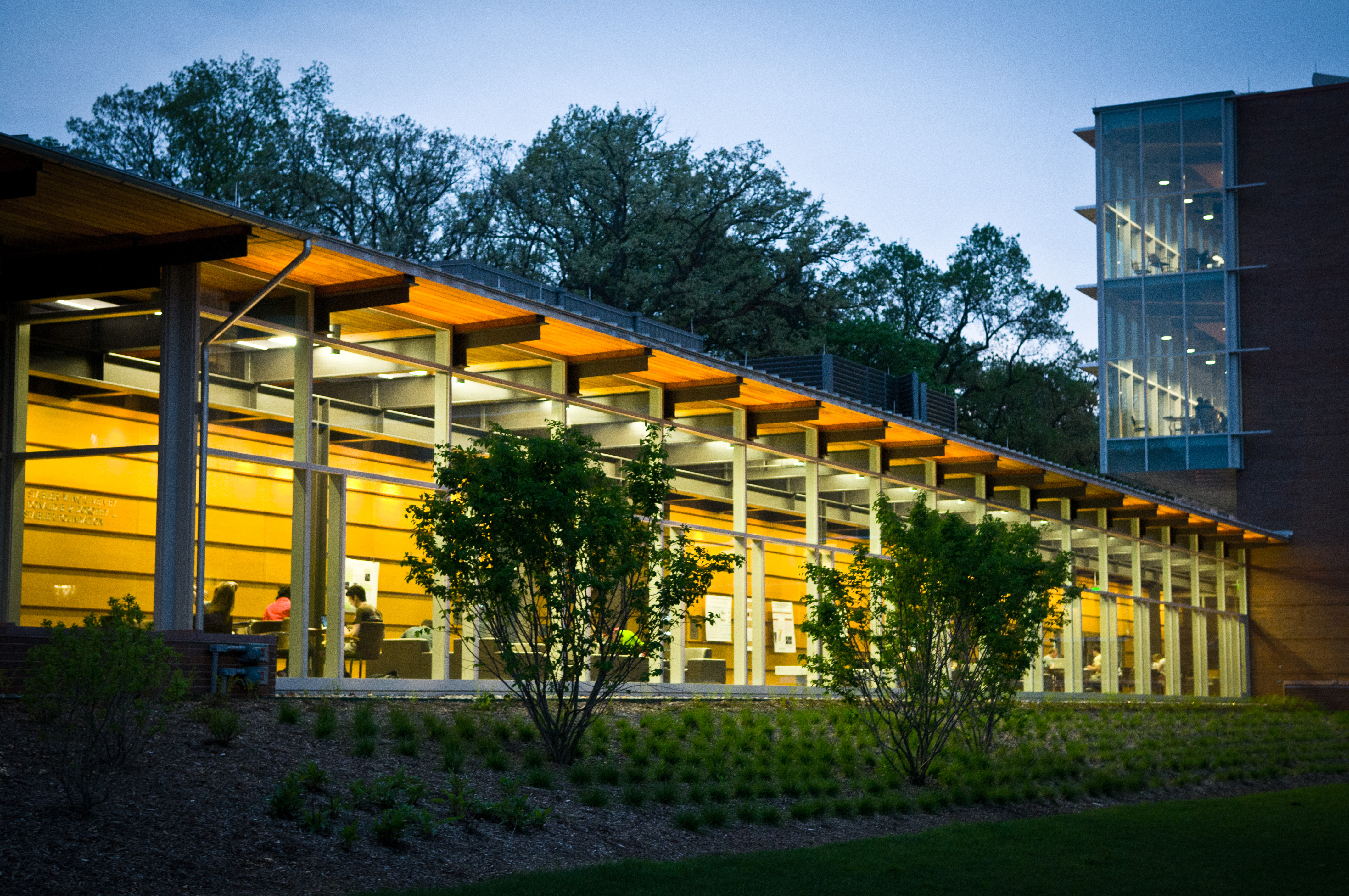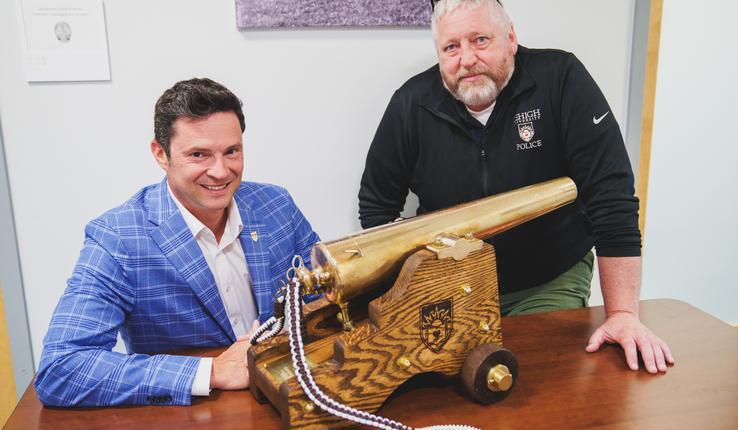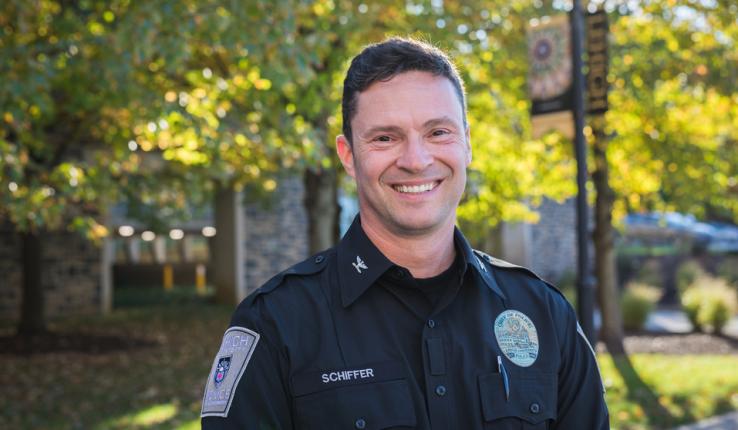Lehigh University Vice President for Finance and Administration Patricia Johnson has announced the reorganization of several departments within Finance and Administration to create the new Division of Campus Safety.
Consistent with best practices in higher education, the new division draws together the teams of Lehigh employees whose work focuses on community safety and security; crisis and emergency response; campus law enforcement; crime prevention; and compliance with safety and security regulations, including Jeanne Clery Act Compliance—the objective being increased collaboration and coordination of safety, prevention, and emergency-related functions across the university.
“Our new Campus Safety Division structure will further align Lehigh’s services, resulting in a more streamlined and efficient approach to crime prevention, emergency preparedness, crisis response, and communication,” Johnson said.
The new division also will provide a permanent departmental home and institutional continuity for Lehigh’s volunteer-led Emergency Medical Services team, the announcement from Johnson said.
The Campus Safety Division incorporates the following areas: The Lehigh University Police Department (LUPD) and Security Guards; Lehigh’s Campus Safety Communications Center (currently called the LUPD Dispatch Center); Identification, Electronic Access, and Locksmith (IDEAL) Office; Environmental Health and Safety (including life safety and fire prevention); and Emergency Medical Services (LUEMS).
Effective December 15, Lehigh University Police Department (LUPD) Chief Jason Schiffer assumed the new combined position of Assistant Vice President of Campus Safety and Chief of Police, overseeing these areas and reporting to the Vice President for Finance and Administration. In this role, Schiffer will continue to collaborate with, and serve as a key advisor to, the university’s senior leaders on public safety issues and law enforcement operations. He will also direct, plan, and manage all functions and operations of the division.
Among the changes included in the reorganization is the re-defining of the university’s Campus Safety Communications Center, which has been principally known as the LUPD Dispatch Center. Schiffer says that this misnomer has encouraged the belief that LUPD is solely responsible for campus safety and may even stop some community members from calling for help. He says community members should feel comfortable calling the newly named Campus Safety Communications Center (610-758-4200) with a safety concern of any kind, and it will be directed to the appropriate area within the division.
“We have tended to tell everyone to ‘Call LUPD’ for nearly anything after hours. But most of the reasons people call the dispatch center have nothing at all to do with policing.” Schiffer noted. “When LUPD is more properly viewed as one of the many components of campus safety, falling under the umbrella of the Campus Safety Division, we will reduce confusion and reluctance for people reporting safety concerns.”
Schiffer joined Lehigh as Chief of Police in 2017 after a 20-year career in law enforcement that culminated in his service as the Chief of the Bethlehem Police Department. He holds a B.A. in Criminal Justice from DeSales University and earned his J.D. from Temple University Beasley School of Law in 2008. Schiffer practiced law after retiring from the Bethlehem Police Department until the opportunity to lead Lehigh’s department drew him back to his roots in public safety.
The establishment of the Campus Safety Division builds on critical steps Lehigh has taken over time to support campus safety. It also addresses the need for better coordination in several areas—including communication, compliance, and reporting—identified during the recent LUPD Review Committee study as well as other examinations of university practices. The LUPD Review Committee report will be released to the campus community in early 2022.
“Safety is a fundamental responsibility of any university,” noted Johnson. “Many employees work every day to ensure our complex and active campus is a secure place for students, faculty, staff and visitors. The Campus Safety Division will create both a more efficient structure and a stronger identity for this important work.”
Article by Hillary Kwiatek
Questions and Answers with Jason Schiffer, who leads the Division of Campus Safety
Why was the Campus Safety Division created and what is the primary goal?
The Campus Safety Division was created in line with best practices in higher education, drawing together our Lehigh teams focused on areas that include community safety and security, crisis and emergency response, campus law enforcement, crime prevention, and compliance with safety and security regulations, including Jeanne Clery Act Compliance.
The goal of the division is to increase collaboration and coordination of safety, prevention, and emergency-related functions across the university. When people think about campus safety, we want them to not think solely about police or law enforcement. That’s just one component of safety. There are many more facets to campus safety involving the work of many departments at Lehigh. Community involvement is also critical - it takes everyone to support a safe university community, and many of the actions that can be taken to make our community safer are related to areas outside of law enforcement.
What areas are part of the new division?
The Lehigh University Police Department (LUPD) and Security Guards; Lehigh’s Campus Safety Communications Center (formerly the LUPD Dispatch Center); Identification, Electronic Access, and Locksmith (IDEAL) Office; Environmental Health and Safety (including life safety and fire prevention); and Emergency Medical Services (LUEMS).
What are some changes campus community members will notice as a result?
We want to help people to start to think differently about campus safety and see it as necessarily multi-faceted, touching many areas across the university. One example of this framing is the changing of the Lehigh University Police Dispatch Center name to Lehigh’s Campus Safety Communications Center. Calling a police dispatch center can be intimidating, and it doesn’t provide a good vehicle for people to get in touch about safety concerns outside of calling the police. We want to make sure anyone with a campus safety concern feels comfortable reaching out for help or assistance, which may or may not require assistance from law enforcement. We want to open up the lines of communication around campus safety more broadly.
Does this mean that Lehigh police and law enforcement will be responsible for safety in all areas of the university and campus?
No. First, I think it’s important to mention that The Lehigh University Police Department takes a community policing approach, meaning relationship building and building trust is a major focus. Policing is not needed for every safety issue, but LUPD officers intentionally want to build relationships and speak with members of the community on a daily basis outside of emergency or public safety issues. So, visibility and involvement in that way is a positive thing. There are also beneficial opportunities for LUPD to partner with members of the community on campus safety programs. One example is the Lehigh Night Hawks program, which was initiated in collaboration with the police department and a group of students to offer an additional, student-led campus safety resource. The idea is that a cohort of students can offer escort services and other non-emergency resources that help enhance campus safety community-wide without necessarily requiring police involvement, which can be intimidating to some. It’s all about providing access to a range of resources that support safety community-wide.
Many Lehigh departments are involved in supporting campus safety. For example, our Life Safety Department is focused on supporting safe and secure learning environments across campus. Our Environmental Health and Safety office is our official contact point for outside regulatory agencies and emergency response actions for spills, fires and unplanned releases of hazardous materials. The Campus Safety Division is now also the home for our Lehigh University Emergency Medical Services (LUEMS), which is a Quick Response Service fully licensed by the Pennsylvania Department of Health and staffed by volunteer students, faculty and staff.
The Campus Safety Division, which draws together all of these areas, formally builds on this framing of campus safety being a community-wide focus that is strengthened through strong partnerships and using a layered approach.





